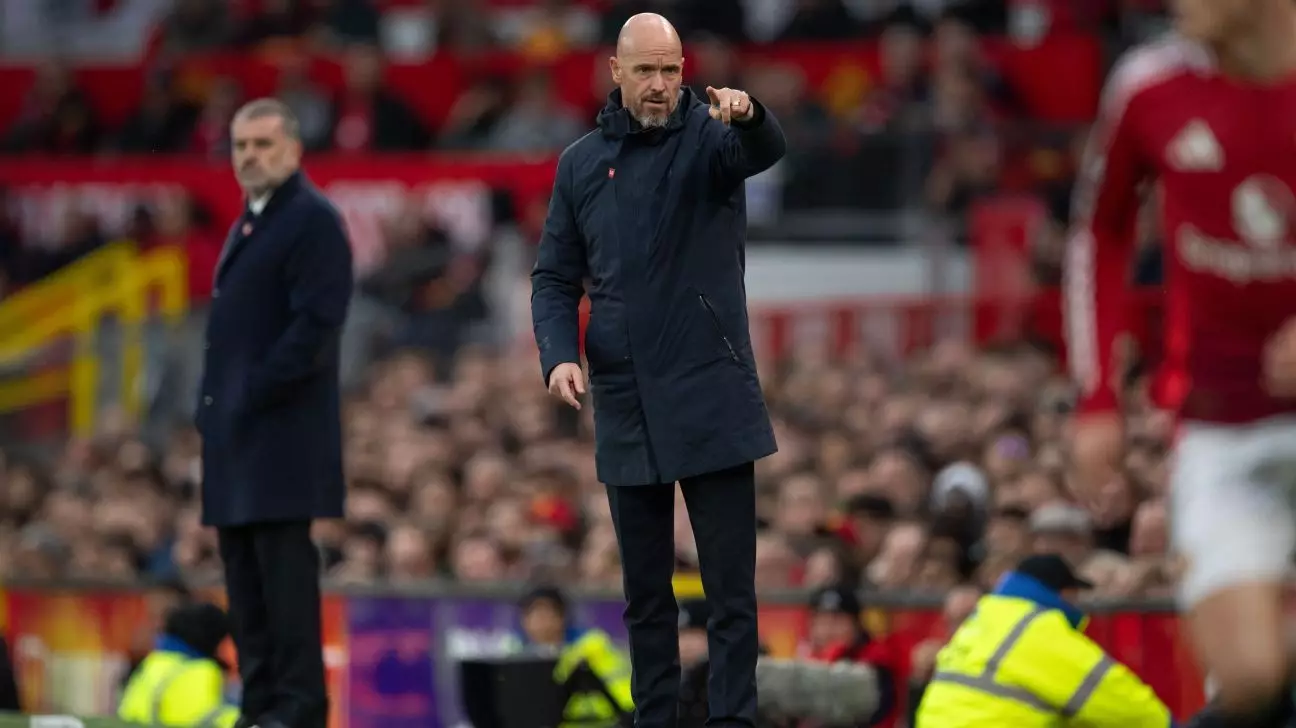Manchester United, one of the most storied clubs in football, has faced significant tumult under the management of Erik ten Hag. Analyzing his recent responses to challenges in the wake of a dire 3-0 home defeat against Tottenham reveals much about his leadership philosophy and approach. This article sheds light on the implications of his comments and decisions as he strives to steer the team back on course amidst pressure and adversity.
The match on September 29 was a stark representation of Manchester United’s struggles. Tottenham not only secured a convincing victory but also amplified the scrutiny surrounding Ten Hag’s leadership. The dismissal of Bruno Fernandes, United’s captain, was a pivotal moment. Initially shown a red card for a challenge on James Maddison, the ensuing overturn of that decision by the Football Association sparked a significant debate about the match’s fairness and impact on both team morale and strategy. Ten Hag’s subsequent decision to “deny” the occurrence was striking; he positioned the red card as a key factor in not only the game’s outcome but as a cornerstone of his rationale for the team’s potential and strength.
Leaders and Resilience: Ten Hag’s Tactical Reassessment
In the face of adversity, Ten Hag emphasized resilience, a theme that has become central to his narrative this season. By framing the team as “determined” and showcasing their character against difficult opponents, including Fenerbahce and Brentford, he is effectively trying to build a positive narrative amid the storm. His assertions serve not only as a motivational boost for the squad but also as a rallying cry to the supporters who are increasingly anxious following disappointing results. By highlighting the fighting spirit displayed, Ten Hag attempts to alleviate some pressure from his players and foster a sense of collective responsibility.
Injuries: A Persistent Hindrance
The issue of injuries poses a significant barrier to success and is another factor Ten Hag has noted as detrimental to the team’s performance. The absence of key players like Luke Shaw and Mason Mount has left a notable gap in both the squad’s depth and tactical options. Ten Hag’s commentary on this aspect reflects a critical understanding of the challenges of not fielding a fully available squad. It suggests he recognizes that fluctuating squad strength significantly impacts match outcomes and overall league positioning. His focus on needing “more players often available” indicates a shift toward structural prerequisites necessary for success in a competitive landscape.
Ten Hag’s acknowledgment of the necessity for a unified front among players and staff is vital. His call for everyone—players and coaching staff alike—to “do better” is an important step toward creating a culture of accountability and collaboration. This collective effort is essential not just for overcoming short-term challenges but also for building a resilient framework that can adapt to the unpredictable nature of football. Additionally, by fostering a sense of community and shared purpose within the club, Ten Hag aims to harness the potential of his players, encouraging them to showcase their capabilities when the full squad is available.
As United prepares for future fixtures, like their upcoming clash against West Ham, the ability to translate internal strength and resilience into on-field performance will be crucial. Ten Hag’s management style aims to balance pragmatism with optimism. By steering the narrative away from the Tottenham debacle and focusing on positive aspects, he hopes to create an environment where players feel empowered, regardless of the external pressures they face.
Erik ten Hag is at a crossroads where leadership, resilience, and collaborative spirit must converge to rescue Manchester United’s faltering season. While the path won’t be devoid of challenges, Ten Hag’s approach reflects a tactical and psychological strategy aimed at achieving long-term success, one that harmonizes the need for immediate results with a vision for future triumphs.

